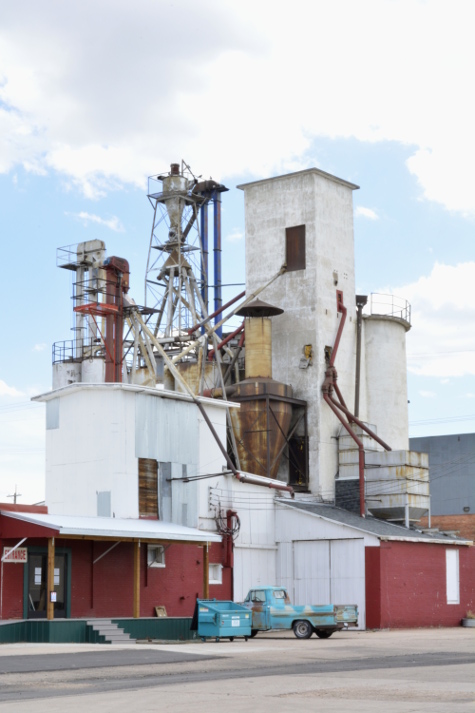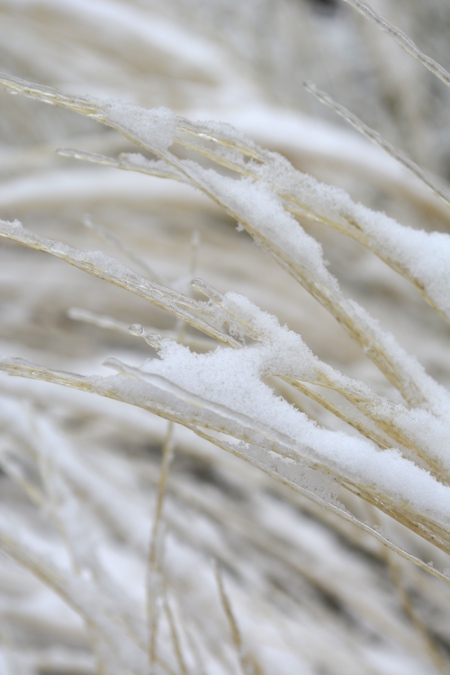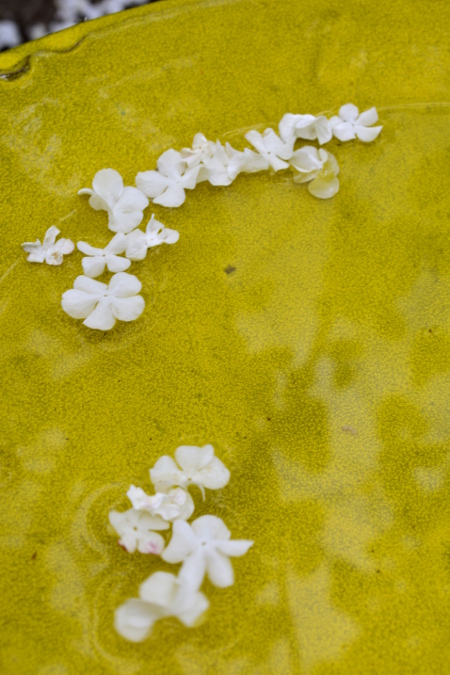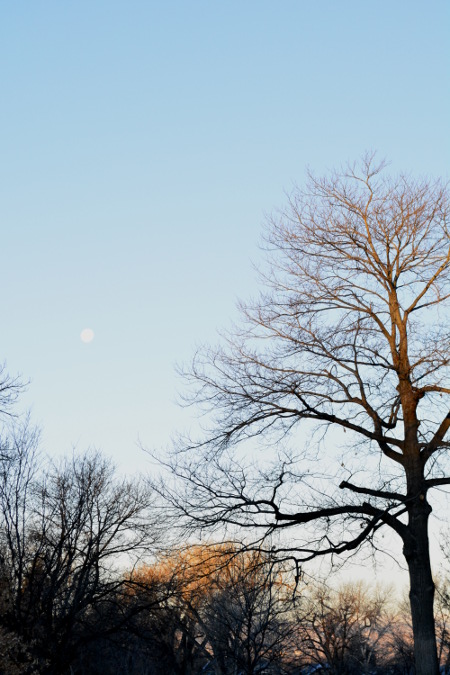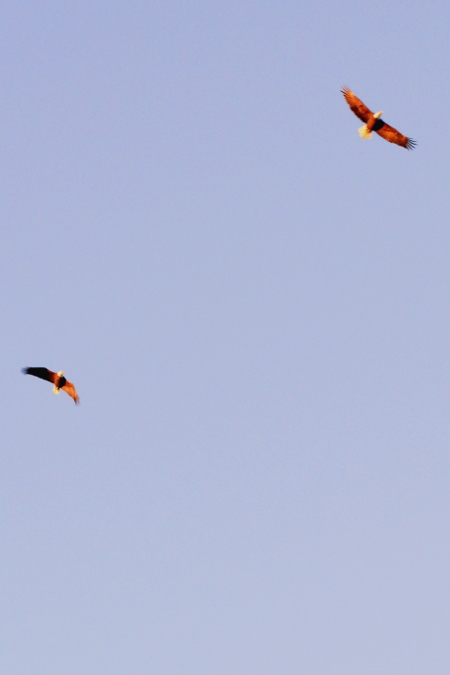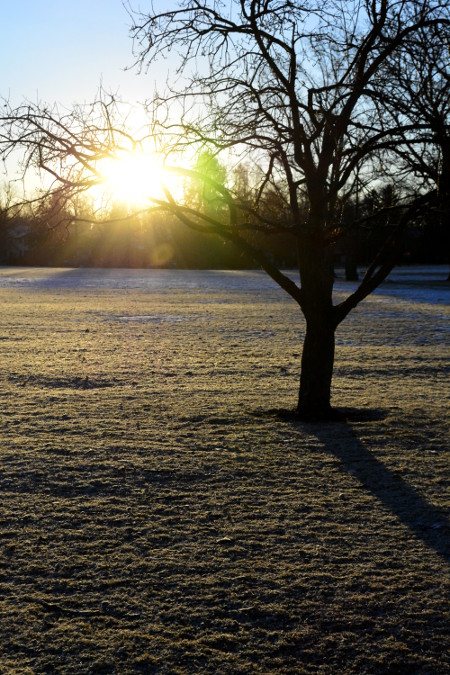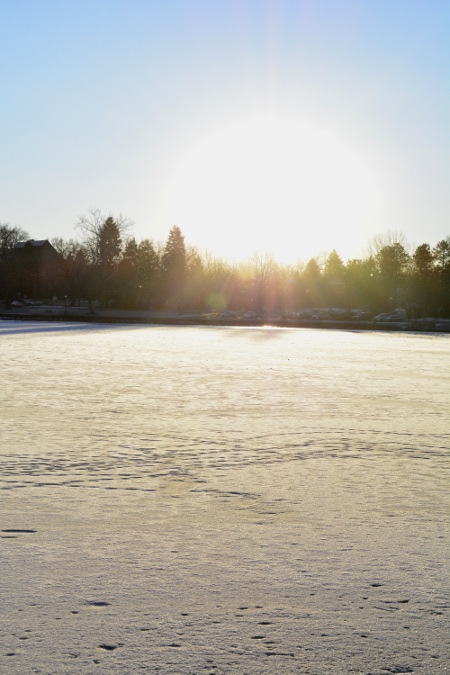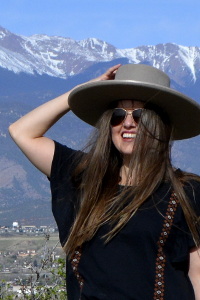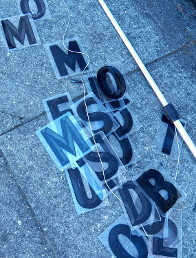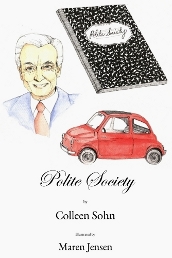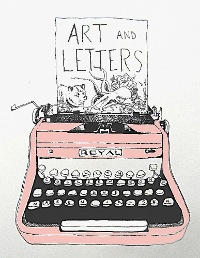A story! I wrote this as a present for Greg’s birthday the year before we left Portland, so almost five years ago. He’d made a request for something sci-fi, and this was it. For some reason, as my mind is often a complete mystery to me, I didn’t picture Greg as the twins in the story. I pictured the boy I’ve drawn below, who reminded me of someone I had seen skateboarding around town. His mother, Lucy, is a dead ringer for the strong, beautiful, and ever so wise Viola Davis.
As for waiting so long to put it here, I worked on it with a writing group ( who liked it!) and attempted to have it published by professionals. Nobody wanted it, and I decided I had let it collect enough virtual dust on the hard drive. I hope you enjoy it…

Asterisk and Ampersand
Lucy Crabbe, upon learning that the swell of her abdomen held the lives of not one, but two, set upon calling them Asterisk and Ampersand, her favorite symbols for more. It was precisely what she wanted, a gracious abundance, two lives sprawling in her belly, sucking her dry and nourishing her simultaneously. And despite their later protests upon learning their names aren’t really names, she does not reconsider nor second-guess, and never once utters a nickname.
They are the boys of the book and the wild, never attending a single day of school, but so full of learning that they recognize every feather and call of their avian neighbors, harvest much of their own food and water, and wring the neck of a chicken just as easily as scampering off to build rockets that don’t just fly but soar.
That’s where we find them now, at the park, preparing for blast-off. They speak a shorthand borne of sharing a single egg and spending the majority of their twelve years in each other’s company, many of their words and gestures imperceptible to the untrained eye.
They earnestly make calculations, wind speed and trajectory their primary concerns. For the pair also share a sincere desire to avoid another close call with Mr. Jarvis and his prize roses. He has little patience for children, particularly the unorthodox variety of a single woman who refuses to send them to a “proper” school.
To each other they are Sand and Star, their sole rebellion against Lucy, names uttered in the sanctity of her absence. Star sees the shimmer before Sand, removes his glasses, and slowly rubs the lenses with the tail of his oxford shirt. No, it is not a smudge causing some strange refraction. When viewed from the proper angle, it appears to be a portal. For, on the other side, lies not the verdant carpet of Portland, Oregon, but the distinct copper glow of Moab, Utah, final destination of last year’s fantastic road trip.
***
The boys, when asked where they ought to spend their annual adventure, uttered Moab simultaneously. Lucy let a small cry slip, and they questioned their choice aloud, “Maybe something closer?” She assured them that their selection was a fine one, but flat-out lied when she said it was only, even after so many years, her bewilderment at the twins stereo response, two great minds working in tandem.
The boys, spellbound for the whole of the trip, were fascinated and delighted by untold shades of crimson, terracotta, and coral, bare earth and sunset sky melding into one. Then there was the plethora of flora and fauna, mostly unknown to them, save a murder of crows that seemed to follow them everywhere. The pair scurried and climbed in switchbacked canyons, baking in immense heat, only to be drenched by clamorous, soul-rattling storms. Each evening, they returned to their spartan motel too tired for speech and shrouded in centuries-old dust.
Lucy, on the other hand, normally insanely organized and marvelously insightful, was perpetually flummoxed and distracted, her mind on vacation along with them. She misidentified common birds, took them to the wrong motel twice, and called each the other’s name, something she had never previously done. Worst was when she wandered ahead on a trail and fainted upon seeing the boys again. Thankfully they revived her and returned to the car without further incident.
***
Star looks to Sand, who still does not see it, brow furrowed in concentration. He inches forward, close enough to reach his hand inside, the sun a tender kiss on cool skin, beckoning like the loudest siren’s call. Seriously tempted to shout to Sand, for every shared fantasy of teleportation, Star makes not a sound, fearful of disturbing the strange alchemy.
Sand realizes Star is abnormally quiet, neither barking orders nor opinions, and becomes upset when he realizes Star is some twenty feet distant, not remotely paying attention, and moving his hand in some odd Tai-Chi gesture.
Sand shifts his gaze to the rocket and back, the subtle change enough to reveal the glimmer of sun and rock. He calls out, and Star turns, smiling. Sand darts and dives, hoping to stop his brother, but only catches Star’s right foot. The portal closes without a sound.
***
The arc of light is stunning, and for the first time, Star wishes his spectacles were of the nerdy variety that change into sunglasses. He squints and shields his eyes, dazzled by the fabulous turn of events. Also for the first time, he regrets not heeding his mother’s advice to wear shoes for excursions outside the yard, fiery rock clawing and scorching his bare feet. With a start, he realizes the big toe of his right foot is missing, no pain nor evidence of trauma, just a void where it once was. He wiggles his remaining digits and takes a cautious first step. Remarkably, the rest of his foot seems not to notice the absence.
There isn’t a soul about, save a preponderance of crows, silent, eyes fixed on him. As he walks, a conversation with Sand spools in his mind, mostly relating to how poorly thought out this adventure is. No food, no water, no shoes, and an incomplete set of toes, to boot. He reaches into his pocket for their shared cell phone, grateful it didn’t disappear with the toe, and contemplates texting his mother. Hope you get this. I’m OK. Lost toe in portal(?). Ampersand will explain. XO – Asterisk.
At that moment, one of the crows swoops beside him, wing close enough to graze a cheek. It lands, and Star extends his hand, expecting it to flit off, but it bows its head instead. He lightly brushes the onyx feathers, and there is electricity and familiarity. He jerks his hand, and the bird flies off. Star watches in wonder as it climbs and dives, again and again, beckoning him to follow.
***
Sand lands with a thud, wind knocked clean from his lungs, wincing and sucking wildly for air. With a shock, he realizes he’s got a vise grip on Star’s big toe, perfect and intact, like it is fashioned from clay and not flesh and bone. He compares it to his own, fully attached and wriggling in his sandal. Identical in size and shape, his lack a tiny waxy mole, the one physical characteristic that distinguishes him from Star.
Star, whom he curses in his decidedly prim fashion. CREEP! Months of working, planning, building, painting, and gingerly packing the tiny parachute tossed aside? Though jeepers, teleportation, there’s really no faulting him. Why couldn’t he have seen the portal first? Not that it would matter. Star is the the risk-taker, the dreamer, with courage to spare. Had Sand seen it first, Star still would have been the bolder and bolted while Sand weighed danger and outcomes.
Now all he has of Star is his stupid toe and a sinking suspicion that the rest of him will not be home before dark. He tugs his handkerchief, delicately wraps the toe, and puts it in his breast pocket before sulking back to the rocket. He contemplates going home but decides against it. Today has all the elements for a perfect launch: clear skies and hardly a breeze, and no annoying grubs to swarm them with questions, or worse, taunts. Save the kids they already know, most are weary of them. Not only are they black boys who do not play basketball; enjoy neither Beyonce or Jay-Z, but Miles, Ella, Eric B. & Rakim; they are home-schooled, use handkerchiefs (embroidered by Gram and enviro-friendly!), and launch rockets. In short, freaks.
Then there is Mom. Despite her open nature and great love for science-fiction, Sand has no desire to return home with a toe instead of a whole brother and tell her that Star’s disappeared through what appears to be a portal to Moab.
Back to business it is. The launch is dream-like in its execution. He dances in triumph at the apex of the rocket’s climb, a mere speck on the lens of sky, and far afield from the wretched Mr. Jarvis and his precious roses. The descent, however, is foiled by a sudden gust of wind, and the parachute snarls, high in an oak. Sand’s anger at Star rises, though he knows he is not the reason for this defeat.
Years of expertise has him scaling the tree like a squirrel, plucking the fuselage from its tangled perch within a minute. Though vanity gets the best of him on his descent, loses his grip, and free falls. With a shock, Star’s handkerchief-wrapped toe begins to drop and he squeezes it to his chest, and rages. Here he is, likely falling to his death, and it is his brother’s toe that he saves. Nooooo!
***
Star follows the crow, sweat coursing and blazing sharp stones tearing at his feet. They round a bend and all is familiar. This is where his mother fainted. The crow disappears and Star shudders, overcome with the sensation of passing through a giant spider web, sticky and cool on his broiling skin. Though the sun still beams, it is no longer hot and the ground turns soft under foot. He walks on and sees a man dressed like a park ranger. He turns, hoping to dodge explaining being barefoot and alone. The man calls out, and Star grudgingly does an about-face.
Like with the crow, there is familiarity, and Star searches his near-photographic memory for a clue. In a book of his mother’s, Sand found a single picture of a man, this man, chestnut brown hair and beard, aviator glasses peeking from the breast pocket of a camp shirt, belted khaki shorts, and hiking boots with dark socks.
As the man approaches, Star witnesses not some stranger’s movements, but his brother’s, and therefore his own: the posture, the tilt of the head, the unmistakable gait, the curve of his right hand. The resounding truth hits him, and he faints, precisely where his mother did.
***
A split second before Sand’s body buckles to the ground, he begins to ascend. He flails wildly, and his arms turn to wings, the iridescent black of the corvid variety, Star’s toe next to his own heart, wildly pulsating in time, and the certain source of Sand’s flight. He takes to it like breathing: soaring, dipping, and flapping.
Hither and yon, ascending and descending, wind on wings, marveling at a view better than any satellite map, taking in the city, he flies all the way to his favorite Saint John’s Bridge and back. He races automobiles, alights on high branches, even dive bombs close enough to ruffle the hair of more than one unsuspecting pedestrian. He caws with delight and feels a pang of sadness that Star cannot enjoy it, too.
***
Star wakes out of time, no sense of direction, cradled in a bed of cumulus clouds.
The man appears and smiles. “Are you alright?”
“I don’t know. It depends. Is this place for real?”
“Yes.”
“As well as can be expected then, considering I just teleported, lost my big toe to who the hell knows what, befriended a crow, and met my father for the first time.”
“It’s a lot to take in. What’s your name? Mine’s Bertram, Bertram Crowe.”
“Asterisk Crabbe.”
“Like a star?”
“Yes, and more,” the story of his mother’s pregnancy reverberating in his ears.
The man appears pleased, but before he has a chance to comment, Star asks, “What is this place, some wacky new age parlor? All that’s missing is a painting of a howling wolf. How do you make the clouds look so real? When Ampersand and I tried with dry ice, they never looked this good.”
“Ampersand is your brother, I presume, your twin.”
“Yes, and he’s probably shitting bricks right now. Teleportation, bitches!”
“Are your names considered unique?”
“Are you fucking kidding? You must not get out much.”
“Is that a yes?”
“I know you are my dad and all, but you’re dumber than you look. Of course it’s a yes.”
“My apologies, I’m not accustomed to your ways.”
“Yah, I can be a bit feral. People who don’t bother to know us blame it on home-schooling. Ampersand is uber-polite and never curses, but since we’re twins, they don’t know the difference. Poor bastard.”
“I see. As for the clouds, most humans find them soothing.”
“Humans? Did you say humans?”
“I did. Birds like nests; snakes like sun drenched rocks; and humans like big, fluffy clouds.”
“Oh my god, it’s the fucking holodeck!”
“Another Star Trek fan.”
“Hell yeah, live long and prosper! So is this a ship? Holy shit, that means I’m half alien.”
***
Lucy, generally preferring not to be the helicopter variety of parent, can’t help but feel curious about the launch. The boys’ unflagging effort is an inspiration: first saving the money for supplies, selling eggs from their chickens, mowing lawns, and doing odd jobs for their grandparents and neighbors; then building, painting, and calculating optimal conditions. Surely they won’t fault her for wanting to see. She finds a cozy spot to observe without being intrusive.
Oddly, Asterisk is nowhere to be seen, probably up a tree to snap photos from just the right angle. Ampersand launches the rocket, and Lucy feels pride and then disappointment when the wind gusts and tangles the fuselage, but knows what a climber he is, too.
Then the magic after the horror happens, a boy falling becomes a crow, flapping and cawing, higher and higher he rises. All the while, Lucy pinches nervously at her skin and looks for signs of Asterisk. Surely this is some fantastic trick. They hadn’t been working on a rocket but some grand scheme to fool her. Wait until Gram and Papa see it on film! She can hear their peals of laughter now.
The crow disappears in the distance, and a piercing quiet envelops the park. She dashes to the fuselage and untangles the parachute, hoping this will rouse them from their hiding places.
Stillness. The low warble of birds. Footfalls on the grass. She gathers the launch pad and controller. No laughter. No boys rushing. Her eyes scan the horizon and every inch of every tree. Her boys are nowhere to be seen. Her precious, precocious, beautiful boys, gone. Where?
She sits and pinches at herself again, the only form of panic she allows, and remembers how it all began.
***
Late winter, thirteen years earlier. Lucy was twenty-seven and craving opposites, a break from a hellish time at work, a boyfriend who treated her unkindly, and the drudgery of months of Portland grey skies. Moab seemed the perfect antidote, a fifteen hour drive and a million miles from all that ailed her.
The park ranger appeared right after she rolled her ankle on some invisible rock, one mile before the trail head. She could have made it, could have limped along. She’d endured worse, like six miles on a wounded knee with forty pounds strapped to her back the summer before. A mild sprain was nothing. But there he was, kind and absurdly handsome, plucked from some ad campaign. She would buy whatever he offered.
He wasn’t actually a ranger, but his mere presence made the world go soft. Her ankle no longer hurt, and the sun, still blinding, lost all power and actually felt cool. She laughed to herself. He is either an angel or a serial killer.
Aside from the fact that his name was Bertram Crowe and he’d lived in the area for years, she gleaned little about him during their two weeks together. He had a knack for turning the conversation around, and Lucy spoke of her life and interests much of the time. Despite eating at local haunts and wandering the town together, she never met anyone who knew him (odd for such a small place), learned where he lived, or what he did for work.
He was a voracious eater, a skilled mountain biker and hiker, and had a brain built by the internet, with no subject of conversation outside his understanding. Yet he was odd and refused to form opinions about anything: Napoleon or Nixon, whiskey or gin, pepperoni or mushroom. Whenever pressed, he changed the subject or remarked that he wasn’t programmed that way.
Thoughtful and possessing an old-fashioned kindness, she relished the refreshing change from the overly dogmatic man at home. Unfortunately, Bertram’s failure to utter even the simplest opinion was beyond anything her Napoleon-whiskey-mushroom self could deal with for the long term. So she decided to sleep with him and maybe get pregnant, for as high as children were on the long list of all her unkindly boyfriend hated, they were just as high on the list of what Lucy badly wanted. She gave not one whit if she ever saw the father again. All the better, really, one less person to interfere with motherhood.
Much to her delight, he was as fine a lover as he was a cyclist. But she kept her wits about her and even left earlier than planned, not wanting to become attached for the wrong reasons.
Upon arriving home, she found a satchel filled with an astounding amount of cash in the trunk of her car. Slightly terrified, she laughed and made a slight adjustment to her initial assessment, an angel or a thief.
***
When Sand returns, bone tired from his inaugural flight, he sees Lucy, surrounded by the rocket and its various accoutrements. In his excitement, he completely forgot. He circles for a moment, watching. To the untrained eye, Lucy appears unperturbed, happy even, smiling, eyes closed to the sun, but then spies the fingers feverishly pinching her forearm. Did she see him fall? Morph into a crow?
Sand descends, cawing to meet her, and she smiles, all knowing, and there is relief in it. That part of the story needs no telling. He bobs his head and takes a few cautious steps. Much to his surprise, he returns to his original form, clothes and all, not a single feather to be found.
Sand places his hand on Lucy’s to stop the pinching. “Are you freaking out?”
“I came to watch my brilliant sons launch a rocket, but one is nowhere to be found and the other, after nearly falling to his death, turned into a crow and flew away. Of course I am freaking out!”
Sand reaches into his pocket for Star’s toe, sorry that this will make matters worse. He places it before Lucy and relays the details of Asterisk’s disappearance.
Lucy gives it a sideways glance before scanning the horizon. “Where is the camera?”
“We left it at home. Asterisk said he wanted this to be about us.”
“I am not amused. Take that piece of clay before I smash it, and tell your brother to show himself.”
“I’m not amused either, honest. Asterisk is in Moab or wherever.”
“Why Moab?”
“Jeepers, I don’t know.”
“Oh god, did he find you? I know he saw us together. The money, this must be some mafia revenge story. Is there a note? Are they cutting off one toe at a time?”
“What?! Stop it! I don’t know what you’re talking about. Who is he? The mafia? What money? How could there be a note?”
“You promise this isn’t a joke, and no one told you to tell me this?”
Ampersand pleads, swearing on Nana’s grave. This is what changes Lucy. She’s caught the boys in plenty of lies, but never would either swear about their precious Nana.
“I’m sorry, but a mob hit and you tricking me really do seem more likely.”
They chuckle, and Lucy lifts Asterisk’s toe from the ground. She sighs and touches the mole that distinguishes her children. “Did you know Elvis had a twin that was stillborn? Imagine that, two Elvis’s. There could only be one. But you, my boys, there has to be two; there has to be.”
***
Bertram replies to Star, “No, this isn’t a ship. It is the dark gaps in my star, and that’s not me being facetious. I hope it won’t come as a disappointment to learn you aren’t half alien, at least not technically. When I shift, I am, down to the last molecule: man, crow, snake, mouse, even water if the task calls for it. And before you ask me how, that’s the realm of the Architects. I am a mere Conduit, and get no glimpse behind the curtain.
“I think about where and what I want or need to be in my sector, and the conveyor takes me there, simple as that. Then, I listen, to people, animals, the wind. I observe plants and clouds, puddle and flow to the contours of land. If required, I make only general assessments, form no opinions. It’s not in my programming.”
“But you’re an alien for chrissake. Aren’t you supposed to fly fantastic ships and stick probes up people’s butts? How boring.”
“You really are feral. I do nothing of the kind. And it’s not boring. Haven’t you ever amused yourself eavesdropping or exploring your neighborhood, really looking at the earth, the trees, the sky; wished you could explore the depths of a rabbit warren, a crack in the pavement, the bark of a tree?”
Asterisk realizes that is precisely how he and Sand spend their days, birdwatching, collecting feathers, stones, and leaves, using their microscope and skills of observation to reveal the mysteries of compost and chicken shit. And how many times had they gazed upon the sky, numb and shivering in the still midnight, just to see?
Asterisk asks Bertram to show him his home world. The clouds alter in density and color: ruby, sapphire, pearl; revealing one faint star, then a myriad of varying size and intensity. The angle shifts and reverses, further and further, revealing the sum of its parts, a whirlpool galaxy and its companion.
“Holy crap, that’s not M51, is it?”
“An amateur astronomer, I see.”
“We both are, Gram and Papa gave us a telescope for Christmas two years ago. M51 was our first big find and our favorite to observe. Only visible in winter, at least in Portland, we froze our balls off looking for it. But there aren’t any planets, no life.”
“Not as humans classify it, no. Our fire, our energy, is life and consciousness enough.”
“It’s not going to be like the Monty Python’s killer joke if I ask to see you, is it?”
Bertram laughs and disappears, and in his place is the first faint star he revealed, a mere flicker veiled in nebulae.
“Shit, you’re a star! But how is this even possible? How did you get here?”
“Teleportation. And you’re actually here. If you’ll recall that spider web sensation before you first saw my human form, you were traveling, between fifteen and thirty-five million light years, depending upon whom you consult. It used to be that no one felt it, the trouble with being older than sin.”
“So we’re not in Moab anymore?”
“Nor in Kansas.”
“And you’re old? Please say you aren’t dying. I’m millions of light years from home, and you could go supernova?”
“No, I’m not nearly important enough for that.”
“A regular death then, and not as terrible as most. I wish Nana could have gone supernova, blown up all the shit bone cancer did to her. She was my great-grandmother and so good, better than I’ll ever be.”
“You’re still young.”
“Yeah, that’s what all the old people say. How long have you been listening and all that, anyway?”
“Oh, hundreds of years, when I first came, there were only the Utes and the animals.”
***
For Bertram, the change in light is jarring at first, but hardly new. He knows cerulean and halos of white. He resides among the pulses, flashes, and placid unfurling of clouds aglimmer and shifting with every conceivable color. Neighbors with changing gravity and zooming sparkling visitors are not uncommon, however novel for their infrequency.
It is the swift succession of extraordinary impulses that most disturb him; the sudden, previously unknown desire for expansion and movement, a relentless call to escape a newly small and confining space. He wrenches and writhes, assaulting all that encroaches upon him, heaving in waves of strength and stupor.
And then, a concussive assault, sound, the first he’s ever known. Peck, peck, peck, crrraack, vociferous, reverberating. Only later will he recognize that he is the maker. Then air, a cold shock on virgin lungs, fast, fast, faster, before an explosive quaking of shell and a final bodily tremor. He is free, naked and free, moist skin kissed by warm desert air.
It will be weeks before Bertram knows or understands what he is, before the archaic systems of arcane masters deliver his orders, for his staggeringly different existence on planet Earth. In the mean time, he learns: to eat, to walk, to gurgle and caw, to fly; reveling in the precise articulation of limbs, of sun heating feathered onyx, of air on wings.
Though he is a close compatriot with his nest mates, he knows they are brethren only to the visible eye. They are different, being solely of the earth, no spirit of the great beyond lodged in their ethers, no knowledge of utter silence, no yearning to rouse their awkward downy bodies for anything but food, to find midnight and glimpse upon the dark sparkle of sky, the closest rendering of what was once home.
When the knowledge comes, it is, and always will be, in one effervescent wallop, vast quantities downloaded and known. There are no benevolent teachers, guides, or voices. It is simple data and instruction, unadulterated, succinct, complete; from the elemental who and what he is, to the history of the Earth. Botany, biology, geology; wars, kings and queens; whole encyclopedias, dictionaries, compendiums, as if experienced directly.
He is a Conduit, one among millions of every conceivable species, covering every inch of earth. His entire body is a vessel for collecting information, eyes on horizon, claws on earth, feathers on wind, ears on thunder and the whisper of wind.
His first assignment is uncomplicated, to become intimately acquainted with his sector, the borders, the baked and crumbling undulations and crags; the wild vegetation; the inhabitants, neighbors, and travelers. And so it goes, soaring, sauntering, pecking, listening and gazing in still amazement at this vast land before him.
As a star, Bertram’s existence was the steady burning of energy, an isolated and silent universal place marker. And while he often misses the homely beauty of gleaming starscapes and that sense of quietude, especially in moments of abject terror at a fulsome tremor of abundant life and death on Earth, he cannot imagine a better or happier life.
Though his work is solitary in nature and his earthly body incapable of leaving the boundaries of his sector, Bertram wants for nothing. Whereas earthlings have the need for food, water, and shelter, he needs none, his star power all that sustains him. No bodily harm can befall him. Though he has been shot clean through and smashed by falling rock, he bears no evidence of it. He will not die until his star burns out or the Architects extinguish him. This does not, however, make him prone to capriciousness or prevent him from participating in the ritual acts of foraging, drinking, and nest building.
He sees it as one privileged adventure, the freedom to move, explore, and apply all that he learns. As well, when it includes the previously unknown pleasures of companionship, circling the sky with his earthly brethren, gorging on carrion, posturing and strutting, hearing myriad caws simultaneously, the isolated beauty of his previous life pales in comparison.
Then there are the humans, browned and beautiful in their facile garments, living equally simple lives: working, playing, occasionally only merely surviving. Their groups, their language, the graphic communiques stone written for eternity, fascinate him, and he is grateful that so much of his work concerns their observation. They are like everything else, his crow family, the rocks, the animals, the stars of his previous existence, seemingly alike until closer examination. Their subtle variation in hue and brightness, the proximity to other stars and gaseous anomalies all part of their individuality.
He observes them at all hours and in every conceivable condition. He knows each in the obvious ways of size and shape, as well as the esoteric, the sound of their breath in darkness, their footfalls, the jagged remnants of broken fingernails and flakes of skin, the scent of their scat and urine, a loose hair caught drifting on a twig. All is recorded, via every available sense, and sent on to the Interpreters, though how they process the plethora of data, he shall never know.
Bertram lives and works this way through the life arc of one human female in his sector: born, growing, learning, mating, loving, mothering, thriving, surviving, and dying. Then his promotion comes, to be and know and do ever more, as a deer mouse, nightsnake, and water. And so he shape shifts with each assignment: scurrying, slithering, flying, raining a thousand drops of water simultaneously to discover infinitely more intimate and close desert spaces. He travels in and among small gaps between stones and tiny openings revealing vast underground warrens of the nocturnal.
It also comes coupled with a portal to his essence, his star, millions of light years traveled in the batting of an eye. The privilege to know every inch of his sector ever more intimately and return to the silent, slow expression of life in space is utterly thrilling.
The first time he meets his own kind, the knowing is immediate. Darting about a bright clutch of Indian Paintbrush, Bertram spies not fur nor legs, but a star, brighter and more brilliant than his own, a mouse to the ordinary eye. He watches the mouse-star for some time, half hoping he is hallucinating, half hoping that the peculiar sensation of his original home is real. Then the mouse spies Bertram and approaches with the fervor of a long lost relative.
“Hello! How is it that I haven’t seen you before? Have you been here long, in this sector? I guess we’re neighbors. Those tricky Interpreters, trying to keep us apart. HA! Think we’re just cogs in motion, wheeling mindlessly. Though I suppose we are, for a bit.”
Dumbfounded, Bertram cannot communicate.
“Oh my, first time seeing the essence, I see. I’ll give you a minute.”
And he does, Bertram swoons and revels at being less alone, one among his own kind. The mouse reveals what little he knows about their work and every detail of the identities of the half dozen or so other Conduits whose sectors converge here. It is with these others, over ages, that he will form the most meaningful relationships of his life, stealing away after long days on assignment, tired and bleary, to laugh and scheme and provide that sense of belonging that only true kin can. They share intelligence of their sectors and others, chance meetings, every scrap of knowledge of the world beyond. And, as technology advances, they use all they glean and steal to finally manipulate their own conveyor, Bertram’s way to his sons.
But that is jumping ahead. First he must become a man and meet their mother. That is his final promotion, becoming a human. It is the only occasion he is allowed to choose his own features: sex, eyes, hair, skin. Without a moment’s hesitation, he fashions himself after a man who died protecting his wife and children a century earlier; unknown, unrecognizable, a hero who inspired his family not only to live, but flourish.
And then there is Lucy, met through an act of brazenness. Utterly bored during a sojourn from work and curious about having a relationship with a human, he spies her hiking in his sector; alone and confident, with luminous skin and determined eyes. And so he trips her, some ten feet from his conveyor. They share a spark, and he knows all will be well in the isolated world of his star, Lucy entirely unsuspecting and every detail rendered perfectly: restaurants, trails, and the cheap motel she will twice take Ampersand and Asterisk to by mistake some thirteen years later.
***
Sand wonders if it was loneliness, his dead twin a wretched hollow he could never fill, that did Elvis in so early. He shudders and hopes it was not his last glimpse of Star. At least he was smiling.
“Mom, are you going to tell me the business about him, the money, and the mafia?”
Lucy sighs, “Remember how I said your father was a sperm donor? Well, I lied, sort of. I only slept with him to get pregnant. I met him on my first trip to Moab.”
“It’s the the man with the aviators, isn’t it? We found a picture in a book once. He is our father? Why would you lie about something as important as that?” His anger biting through his words.
“Yes, the man in the aviators, Bertram Crowe. Clever and skilled, the man knew everything, but he wasn’t quite right, and not because he was interested in me. I know how you are, smarty pants. He was peculiar and boring, considering all he knew. Turns out, and this is the reason why I lied, he was some sort of thief or criminal, because when I got home, I found a bag of money, a lot of money, in my trunk. I buried it, expecting him or some gun toting lunatic to come for it, but no one ever did. When Auntie Elodie died, I said it was part of the cash she stashed in her attic. It’s how I bought our house, countless necessities, and a few frivolities. Your father, the gift that keeps giving.”
She leans in to hug Sand. “You two being the best.”
Still angry, Ampersand replies, “So my father might be a wacko looking for a clutch of cash. Super. As if I’m not odd enough. Home-schooled, science-loving black twin of a single mother. Thanks a lot, Mom. That’s why you were so weird in Moab.”
“I’m so sorry Ampersand. There was no way to know at the time, and I certainly couldn’t risk telling you. You must see that. I fainted because I saw him, looming like death behind you. I was so afraid he was going to kill us all. When I awoke to your shining faces and not his, my heart cracked wide open, as lucky as the day I learned I was pregnant.”
“Always going for the pregnancy story when times get tough. Sheesh.”
“Only because it’s true! You know what a joy it is to be your mother.”
“It just makes it impossible to be angry. You’ve been furious over much smaller lies.”
“Your lies weren’t meant to protect me, Ampersand.”
He glares at Lucy, then softens, “Do you think he’s responsible for the portal?”
“It might explain why he was so odd, some alien or mad scientist. Your last name might rightly be Frankenstein.”
***
“Are you going to tell me about my toe? Why didn’t you look for us before? Twelve years is a long time.”
“Blame the toe on age. Like most everything that is old, I don’t have as much energy or work as well as I used to. I didn’t know you were coming until it was too late. I’m grateful you weren’t cut in half. That conveyor isn’t actually mine, which makes it even more difficult to operate. You see, a group of us recently discovered how to program one. It took years and countless pilfered and found cell phones and walkie talkies. Our greatest accomplishment, really. And, I might as well be frank; your toe will never grow back. I hope you had no high wire aspirations. But it likely has flying abilities, a chip off the old block, to borrow an expression.”
“My toe might be able to fly?”
“To make you fly. I was observing just before you saw everything, high in that oak. There are always traces of DNA on the conveyor, capable of animating other objects. I’ve seen mice turn into crows as if it were their very nature.”
“Fuck. This shit is crazy. Animation, teleportation, how long have you been watching us, anyway?”
“For about ten minutes today, and whenever I could over the past few days. I’ve only just found you. I had no idea you existed until last summer, when you visited with your mother, to answer another question. I’ve had my kind searching ever since. Another antiquated system, I’m afraid. I only knew you were in Oregon by the license plate. That is a lot of ground to cover by birds, and a bit of chance, too. It is fortuitous that you enjoy the outdoors. Conduits lack the clearance to see through walls.”
“Birds?”
“The crows again. A small minority you see are my kind. An even smaller minority are willing to risk a great deal to share non-duty information among us.”
“So my mom actually knew you? She said you were a sperm donor.”
“A mere technicality. We spent two weeks together, here, though she thought it was Moab.”
“All the riding and hiking she told us about, even the eating in restaurants happened here, with you, not in the real Moab? She was never alone? She said she was alone.”
“I’m sure she has her reasons for secrecy. I met her near the site of all the fainting.”
“Holy shit, she fainted because she saw you!”
“She turned just as I was exiting my conveyor. I nearly tripped over you.”
“But we could have met. You would have known me sooner, Ampersand sooner. Mom’s given us everything but a father.”
“It couldn’t have been the way you imagine, Asterisk. There were too many Conduits that day, most days. It was chance that I met Lucy when I did, chance that I saw you with her, chance that you were able to come through the conveyor today. This is not supposed to happen. Relationships among Conduits and humans are strictly verboten.”
“Why, then?”
“Opportunity, curiosity, the carelessness of old age. I have less to lose, but that hardly means there wouldn’t be consequences. Architects could hasten my extermination, could wipe your family’s memory.”
“Jesus, it’s like the fucking mafia.”
“NO. The mafia wouldn’t let you live. They come to Moab, believe it or not, dead bodies and satchels of money. I stashed the biggest I ever found in your mother’s trunk, as a parting gift. You can have one, too, if you like.”
“I suppose I better. Mom complains enough about expenses; just wait until I’m brain dead, drooling and shitting myself.”
“Feral with a tendency toward melodrama and pessimism.”
“That’s not funny.”
“It’s an observation. It’s what I do.”
“And what do I do when I get home? What about Mom and Ampersand?”
“Tell them everything. Observe crows and M51 in a new light. Maybe fly. Build more rockets.”
Asterisk laughs, “Oh man, I didn’t mean it literally, but if it’s going down like this, you’ll remember us, and visit, too. You only live once; wouldn’t you like to know both of your sons before it’s lights out? I’ll even give you our address to make it easy.”
***
Asterisk returns through the conveyor to the park, duffel full of cash and, mercifully, no amnesia nor further loss of limb. He makes a fruitless search for his toe, keen on learning if it is capable of flight, hopeful that Star found it and not a rodent or an Architect parading as a crow.
He sprints home and reunites with Sand and Lucy. Keyed-up like Christmas, the trio contemplate what to do with the financial boon and retell the surreal events of the day, apologizing for transgressions and half-truths.
For the next few weeks, the boys divide their time between what they hope are equally covert acts of flying and watching for signs of Bertram at the park, the thought of the Architects wiping their memories a distinct fear.
Late one night, under a moonless sky, eyes glued to Saturn in a spectacular new telescope (courtesy of the mafia money), the twins hear a rustle and wonder if it is a raccoon in search of chicken eggs again. They examine the coop and discover a crow scratching at a bit of paper before disappearing into the velvety black. A note from Bertram!
Asterisk and Ampersand –
If you are receiving this, I am gone, one less star in the universe. The Architects have changed protocols and even assignments after some hundreds of years, and I am certain their detection or suspicion of the clandestine conveyor is their underlying motivation. It won’t be long before they suss out the players in our operation.
Know that I am grateful, to Lucy and her sprained ankle that led to this improbable interstellar family. Know, too, that I wished to see you again, Asterisk, and to know you, Ampersand, to have had a relationship with you both. There just wasn’t time. The one consolation is that though I am gone, the persistent hues of Moab and the light of M51 shall be a reminder of the marvels that transpired.
Affectionately –
Bertram Crowe
The boys sigh and crumple into each other. Then, in their unspoken language, make the proper adjustments and turn the telescope to the spot where they first spied M51. The space where it would be in the chill of winter is inky black, a palpable void with nary a star.

